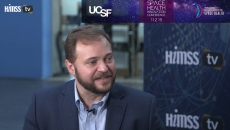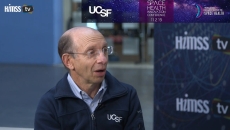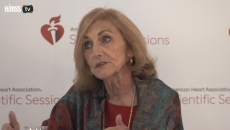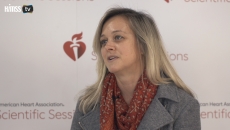HIMSS TV
Space health helps bring cutting-edge technologies down to Earth, says James Hury, deputy director and chief innovation officer at the Translational Research Institute for Space Health.
Focusing on the health of humans leaving the planet pushes our current capabilities, says Dr. Dan Lowenstein, executive vice chancellor and provost at UCSF.
Encouraging health skills is increasingly difficult in today's landscape, says University of Pittsburgh Professor Lora Burke, who has done research in healthy behaviors.
In our first episode of "When It Works," intracranial hematoma patient Danielle Collins and George Washington University Hospital's Dr. Walter Jean discuss how a virtual reality tool provided surgical theater to help Collins comprehend her condition.
The American Heart Association is working to bring clinicians, behaviorists and technologists into a single conversation, says Patrick Wayte, SVP of the AHA's Center for Health Technology and Innovation.
Duke School of Medicine Professor Dr. Eric Peterson says the gulf between tech's vision and the clinical world's practical needs is wide, and clinical evidence will be vital in closing that gap.
Heather Provino, managing partner of The Scanlon Group, explains why the last few years in particular have been exciting for population health's digitization.
The American Heart Association is looking to guide healthcare startups as they build credibility, says Kathleen Warner, the organization's chief of emerging strategies and ventures.
HIMSS President and CEO Hal Wolf says we must prepare our workforce for cultural change and ensure we learn to fail fast in our global digital transformation projects.
Siemens Healthineers EVP of Digital Health Peter Körte says the company aims to make the lives of physicians easier by increasing their confidence in treating their patients and ultimately improve patient outcomes.










